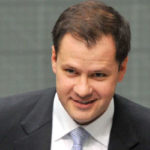Ministerial reshuffle marks a crossroads in science and innovation policy

Malcolm Turnbull’s ministerial reshuffle has revamped his industry team but his apparent demotion of the science portfolio has raised eyebrows, given his initial enthusiasm for a science and innovation agenda.
Jobs and Innovation
Michaelia Cash, who took over the Department of Industry on a temporary basis when the highly respected Arthur Sinodinos took medical leave, has now been promoted permanently as Mr Sinodinos’ treatment continues. The portfolio has been renamed Jobs and Innovation and encompasses her former responsibility for employment, but this does not disguise the fact that she is now the fifth minister to hold the post under the current Prime Minister, with Ian Macfarlane, Christopher Pyne and Greg Hunt having served for short spells as well.
Uncertainty over the health of Mr Sinodinos has seen the Department tread water in recent months. The Government has delayed its response to the proposed Innovation and Science Australia 2030 strategy to the New Year and is still to address the 6 major recommendations made by the Ferris, Finkel and Fraser inquiry into the multi-billion dollar R&D tax incentive 18 months ago.
The National Innovation and Science Agenda, the central plank of the Prime Minister’s initial appeal to the nation, was launched two years but the second and third announcement of policies once promised to maintain momentum have also failed to appear.
Senator Cash will be assisted by Craig Laundy, the new Minister for Small and Family Business, Workplaces and Deregulation, and the ACT senator Zed Seselja who is now Assistant Minister for Science, Jobs and Innovation.
Digital Transformation
Michael Keenan has been promoted to run Human Services and been given additional responsibility for the digital transformation of its wide range of service delivery. His appointment as the Minister Assisting the Prime Minister on Digital Transformation and leadership of the Digital Transformation Agency signals a significant change in approach, as the Agency was formerly part of Prime Minister and Cabinet.
The switch is an admission that progress towards digital transformation has been slow, with government departments and the media showing little interest in the issue, but Mr Keenan’s lack of background in technology means his ability to enthuse others remains to be seen.
Keenan will not only have to make the theoretical argument that digitisation can save departments money, improve customer services and create opportunities for Australian tech companies, but ease bureaucrats from long standing legacy processes, which may prove an even harder task.
Law Enforcement and Cyber Security
The previous head of the DTA, Angus Taylor has been given responsibility for Law Enforcement and Cyber Security under Peter Dutton in an expanded Home Affairs portfolio, underlining the Government’s commitment to improving national, commercial and personal cyber-security.
While a raft of measures, such as the new Cyber-Security centres, are now underway and co-operation between industry and government on the issue has improved, the increasing scale of cyber-attacks remains a growing problem for both the government and the nation as a whole.
A boost for innovation?
The CEO of StartupAUS, Alex McCauley, hoped the new appointments would revitalise the government’s innovation agenda. “We need to get back on the front foot with innovation policy, and we’re looking forward to working closely with the new Ministers and their teams to amplify the positive impact of technology-led innovation on Australia’s economy.”
“The pairing of jobs with innovation in Minister Cash’s new portfolio makes a lot of sense,” he said. “We know that young, innovative, high-growth companies account for almost all the new jobs in the economy, so these issues are inextricably linked. Recognition of that link in the new portfolio is an important step.
“Minister Cash has a strong track record in this area. She’s been actively engaged in the innovation agenda in previous portfolios and is a natural fit here. I expect she’ll approach the new role with energy, vision, and expertise. Those qualities are very welcome at a time when the national innovation conversation needs a kick-start.”
Whither science?
Turnbull’s former enthusiasm for scientific innovation appears to have waned as the science portfolio has lost its dedicated position in the cabinet and is now subsumed into the vast new Jobs and Innovation portfolio.
The President of Science and Technology Australia, Professor Emma Johnston, was quick to criticise the move and worried that science would once again slip from political consideration.
“We are concerned that without a Department specifically responsible for science, Australian science and technology research will not have the focus that it needs and deserves,” she said in a statement to media. “This is the fourth Minister we’ve had in three years, and the second time that we have not had a Federal Minister for Science – if science is not a priority, we risk damaging the sector and Australia’s future health, wealth and wellbeing.”
Although she welcomed the energy and interest of Senator Cash in innovation, she urged renewed commitment, noting that “as the Australian economy grows and the global appetite for innovation and research expands, it is vital that we have strong leadership for the science and technology sectors.”
She urged the Government to prioritise investment in science, technology, engineering and mathematics given their importance to future growth and high return on investment. “Investment in science and technology pays economic, social and environmental dividends. In Australia, the National Health and Medical Research Council returns $3.20 for every $1 it invests in its work. In Europe science provides a 250% return on investment, and in the USA every dollar spent on science and technology returns $2.21 on average.”
“Remarkably, in the UK, for every pound government spends on science and innovation, they receive 20-60 pence in return every year, in perpetuity. With the right strategy, there’s no reason why Australia can’t take full advantage of these returns. When you look at the figures, it just makes sense to invest in science.”
A second wind?
Whether the cabinet reshuffle reinvigorates Turnbull’s innovation agenda or signals its demise remains to be seen. Turnbull’s initial pitch for science driven growth, digital transformation and economic change scared rather than enthused the public at the last election, with people more worried about their current jobs than future opportunities. Senator Cash in particular has a backlog of major issues to address and action, rather than continued shuffling of personnel and job titles, is required in 2018.


